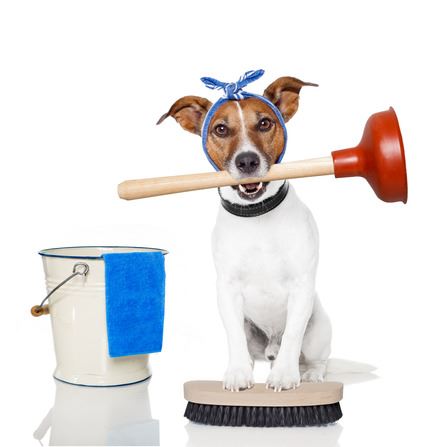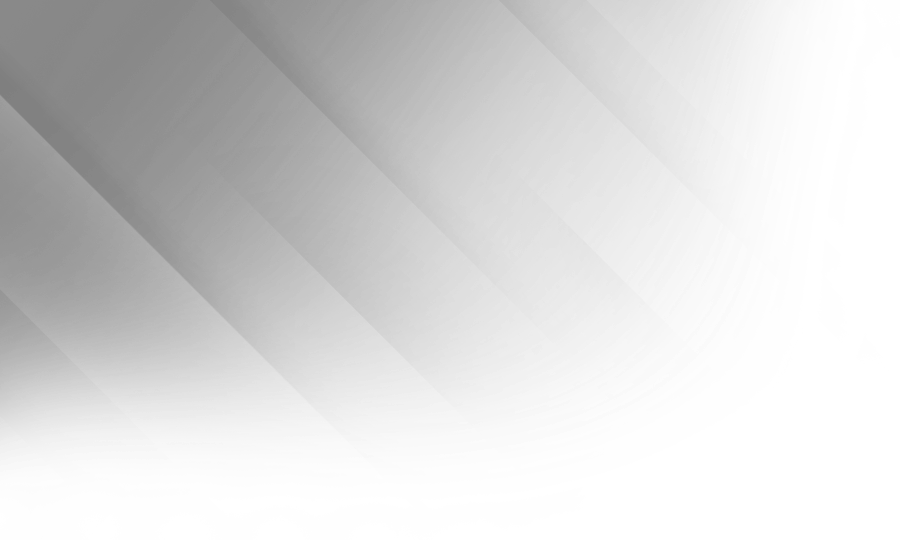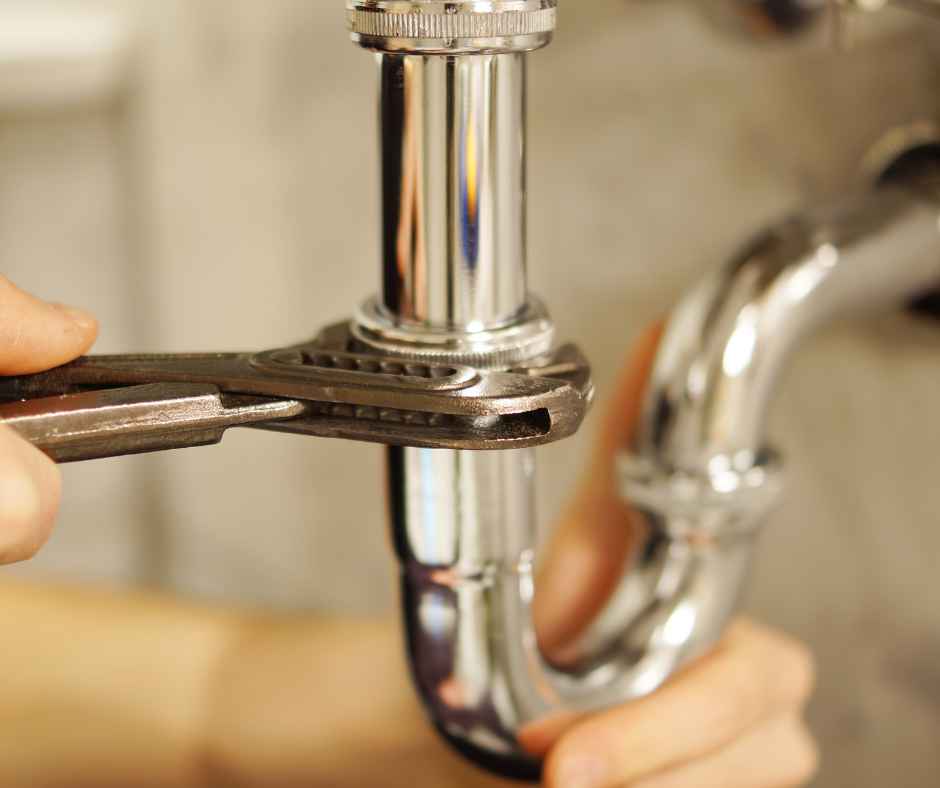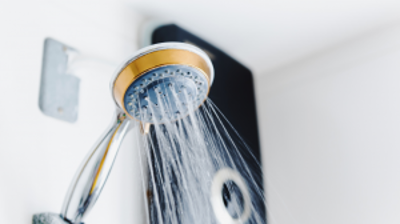Serving Greater Atlanta & Savannah/Hilton Head
How To Unclog a Kitchen Sink With a Garbage Disposal


If your kitchen sink is filling up with water every time you run the garbage disposal, you’re not the first to deal with it—and you won’t be the last. Unclogging a kitchen sink with a garbage disposal might sound like a hassle, but it’s a more common issue than most homeowners in Atlanta realize. It usually results from food waste or grease collecting somewhere in the drain line and creating a blockage, but sometimes the problem is more complicated.
You might wonder, “Why is my garbage disposal backing up into the sink?” or “Why does my sink back up when I turn on my garbage disposal?” These are good questions because they get to the root of what’s happening inside your plumbing. Often, it’s not just the disposal that’s the problem—it’s how the disposal, pipes, and drain line all work together. If even one part of that system gets blocked or overloaded, the water has nowhere to go but back into your sink. That’s when things start to get messy.
The good news? You can often fix the issue without needing to take anything apart. But even if a quick fix doesn’t do the trick, understanding what’s causing the backup is the first step to solving it—for good.
How Do You Unclog a Sink That Has a Garbage Disposal?
When your kitchen sink isn’t draining and the garbage disposal is making it worse instead of better, it’s easy to assume the worst. But most of the time, these clogs aren’t anything a little troubleshooting can’t fix. Whether your garbage disposal is clogged and backing up into the sink or you’ve noticed water gurgling back when you flip the switch, there’s usually a manageable reason behind it—and a solution you can try before calling a professional.
These step-by-step instructions can help clear a clog without damaging your disposal or sink:
- Step 1: Turn everything off – Start by unplugging the garbage disposal. Never work on a drain where the garbage disposal has power.
- Step 2: Use a natural drain cleaner – Use a natural cleaner made from a quarter-cup of baking soda followed by a half-cup of vinegar. Allow it to fizz in the drain for a few minutes before washing it out.
- Step 3: Flush with hot water – Allow water to run for a few minutes to clear the clog.
- Step 4: Repeat as necessary – Use the natural cleaner again if the clog persists.
- Step 5: Check for visible blockages – If the clog remains after using this procedure a few times, use a flashlight to peer into the drain. Sometimes, you can see a foreign object in the drain — for example, a bone or utensil. You may be able to reach the item using a pair of tongs or needle-nose pliers.
- Step 6: Restore power – Plug in the garbage disposal, run water, and turn on the unit.
- Step 7: Use a plunger (carefully) – If you still have a block, you can use a plunger to attempt to loosen the clog. If you have a dishwasher, it’s important to clamp the end of the dishwasher line where it enters the disposal to prevent the hose from popping off the disposal nozzle as you plunge the sink drain.
- Place the plunger directly over the sink drain so the plunger completely covers it. Add water to the sink so the lip of the plunger is covered in water. Then, vigorously plunge the drain for a minute.
- Lift the plunger and check for water flow. If it remains clogged, you can repeat the process a few times to see if you can release the clog. If the clog dissipates, run hot water for a few minutes to remove the built-up residue.
Why You Shouldn’t Use Chemical Drain Cleaners
When clogs occur, a natural reaction is to grab a chemical drain cleaner from a big-box store and use it to solve the problem. However, chemical drain cleaners can corrode and damage your pipes. And if you have a garbage disposal, the chemicals can damage the unit’s plastic components and metal blades.
Think twice before pouring a chemical cleaner down the drain, and take the steps outlined above instead.
What’s Causing the Backup?
If your garbage disposal is backing up into the sink or making your kitchen smell less than fresh, you’re not the only one who’s experienced this issue. These clogs can sneak up fast—one day, things are fine, and the next, you’re dealing with standing water, odd noises, or worse.
A backup usually means something’s blocking the drain—either in the disposal itself or further down the line. When the garbage disposal is clogged or jammed, water and food waste can’t pass through the drain properly. Instead of flowing out, everything comes back up into the sink. This backup often happens when grease, stringy vegetables, or too much food is shoved down the drain at once. Even if it seems to grind up fine, the buildup can lead to a full-on clog.
The most common culprits of a kitchen sink clog include:
- Grease and oil that cool and solidify in the pipes
- Fibrous or starchy vegetables like celery, potato peels, or onion skins
- Coffee grounds and eggshells
- Soap scum, especially when mixed with hard water minerals
- Food scraps that weren’t fully broken down by the disposal
These materials can build up along the pipe walls, narrowing the drain opening and slowing water flow until a clog forms.
If flipping the switch on your garbage disposal causes water to rise instead of drain, that usually signals a problem with the plumbing layout or a blockage further along the pipe. In some Atlanta homes, the garbage disposal shares a drain line with the dishwasher—so if one is blocked or improperly vented, turning on the disposal can cause water to back up into the sink or even the dishwasher. It’s also possible that the pipe configuration doesn’t allow for good flow, especially in older setups.
Call an Emergency Plumbing Team
If your clogged sink won’t drain, no matter how many attempts you’ve made to fix it, it’s time to call a plumber! Leaving standing water, especially with food debris, can be dangerous to your health. Hence, a seriously clogged sink is an emergency.
At R.S. Andrews, our team is available to help with any plumbing issue you may face! We offer:
- Drain cleaning – Don’t let buildup in your drains lead to a clog! Our team offers high-quality drain cleaning services that will have water flowing freely down your drains.
- Garbage disposal repair – We rely on our garbage disposals a lot, so a broken one can be a serious inconvenience when cooking and cleaning up. Our repair services will have your garbage disposal up and working again soon.
- Emergency plumbing repair – If your plumbing issue can’t wait, our team is available 24/7! You can count on us for fast and reliable service.
- And more!
Call R.S. Andrews at (470) 264-8128 or contact us online to schedule drain cleaning, garbage disposal repairs, or other plumbing services in the Atlanta area.
Heater on the fritz? Frustrated with plumbing problems? R.S. Andrews is just a call away!




